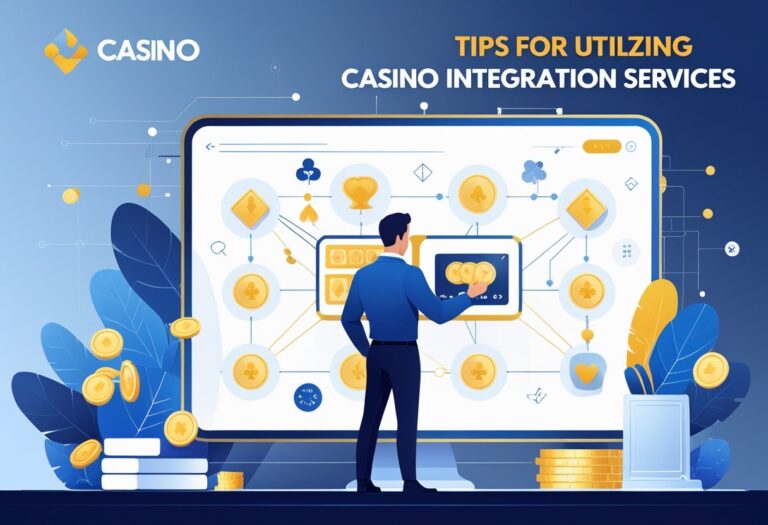
Gambling Addiction: Signs, Symptoms, and Solutions
Insight Into Problem Gambling
Gambling addiction is a progressive disease affecting the brain’s reward system in ways that are similar to substance dependence. It is a disorder that is complex and affects millions of people across the world, causing disruptions in personal relations, careers, financial stability and where children become adults themselves too often soon perishing the gluttonous flames.
Recognizing the Warning Signs
The following important indications may help you tell if gaming has become a problem for you.
Rising the amount you bet in order to feel the same thrill whether you win or lose
Repeated failures at quitting or cutting down on your betting
Your mind often thinks about gambling
Secretive behavior about one’s gambling
Chasing losses with increasingly risky bets became common for you
Effect Upon Mental Health
Individuals with gambling disorder frequently show associated with or aggravate certain emotional state of delicate balance disorder, particularly:
Major depression
Ailments in anxiety
Substance abuse
Bipolar disorder
The Role of Professional Treatment
Types of Therapies
Cognitive-Behavioral Therapy (CBT) focuses on changing detrimental thought patterns
Organizational therapy brings peer support and accountability
Family therapy helps heal fractured relationships
Financial psychotherapy helps to manage problems with money
Systems of help
Meetings of Gamblers Anonymous offer group-based cure
Help on the web includes availability 24/7 for people with different time zones or work hours
First aid help lines deliver urgent help
Apps for recovery monitoring support you as well to be whole again
Assisting Recovery
Successful treatment often includes:
Professional therapy
When required, medication management
Arrangement of life style
Solutions for solving debt problems
Strategies to avert relapse
What is Problem Gambling
Understanding Problem Gambling: A Comprehensive Manual
Clinical Definition and Characteristics of Problem Gambling
Gambling addiction is a progressive behavioral disorder which is characterized by an overwhelming desire to gamble regardless of the consequences it may have. This complex condition causes the brain’s reward system to become disordered and reflects patterns in substance addictions.
This disorder is characterized by persistent and recurrent problematic gambling behavior that is associated with significant clinical impairment and personal distress.
Crucial Diagnostic Indices
Diagnosis of gambling disorder at the clinical level includes the following important indices:
Escalation of stakes – Must bet with increasing amounts of money
Withdrawal symptoms-Lack of control or inability to stop gambling, especially at the expense of other activities
Loss of autonomy over gamblingReflective Dysfunction
Mental fixation–The head is always filled with poker and horse racing
Emotional refuge–Escape reality/human emotion by gambling
Chasing loss–People chase losses back into the casino
Cheating–In reality people are gambling much more though it seems that it is not the case on paper records; they’re actually “skimming cards” if one wants to put it that way
Harms Relationships/Futures prospects–Very large study in Utah shows a correlation between spending more on birds and less time with your spouse. It also looks at the effect this has on obesity
Turning to others for money–This can travel one of two routes: you have your friends or family provide the necessary finances by way of member public funding
Co-occurring conditions in other systems require a comprehensive professional treatment beyond one which simply targets problem gambling
From casual betting to out-of-control gambling, the journey can be broken down into segments. When effectively treated, people can recover more quickly and fully than if not.
Warning Signs and Risk Factors
What Are Warning Signs and Risk Factors of Problem Gambling?
Primary Behavioral Signals
Problem gambling behaviors display as distinct programs that act like early alarms. Warning signs include:
Progressively higher level of involvement with the poker machines
Wagering increased stakes just to achieve desired (peer-approved) excitement
Repeated unprompted actions or determination to Quasar Quest avoid (betting) activities
Escape (from problems & negative feelings) using betting
Factors Contributory to Pathological Gambling
Personal Risk Factors
Family background–a strong record of addictive or gambling problems exists there
Introduction to gambling environments and activities at an early age
Risky personality traits which are easily influenced
Concomitant mental health disorders: depression and anxiety among others
Environmental Risk Factors
Readily available betting facilities and online channels for betting
Pressure financially and economic
Lack of supportive social structures; isolation from the rest of society
The availability of venues within which people can gamble and a society that provides fuel for addiction without actually forcing anything on anyone are environmental aspects
Warning Signs and Risk Factors
Problems with Finances
Hidden transactions connected with gambling
Many loaned sums from different people
Disposing of possessions to finance gaming
Debt that is not due when it was incurred
Social and Behavioral Early Warning Signals
Hiding their gaming activities from others
Neglected their duties at work and home
Disputes in relations caused by gambling
Withdrawal from social habits
People who experience multiple warning signals are advised to immediately go for a professional evaluation and seek support from gambling treatment experts.
The Psychology of Gambling Addiction
Gambling addiction is not only a matter of law, but also a psychological problem.
The current scientific research tells us that gambling addiction exploits a variety of neurobiological mechanisms and psychological factors to create deeply rooted behaviour through powerful reinforcement cycles. The reward center in the brain, with its release of dopamine during gambling activities, is a key starting point at which addictive patterns emerge.
Psychological Reinforcement Mechanisms
In gaming behavior, the so-called variable ratio reinforcement schedule is a key factor that causes people into never-ending action patterns. Through repeated experience, the mind makes strong connectionsbetween gambling activities and future anticipated as well as actual rewards.
This repeated experience strengthens the neural pathways for that sort of compulsive behavior.
Cognitive Distortions in Gambling Behaviour
Cognitive distortions are an important factor perpetuating gambling addiction. Among the types of cognitive distortion are:
The gambler’s fallacy: Believing that past losses make future winning chances increase
Overestimating control: Imagining that one can influence random outcomes
The near-miss effect: Triggering reward responses that are similar to true wins
Working in concert, these psychological mechanisms provide an extremely solid basis for further gambling despite accumulating losses.
Addictive patterns could be addressed only through comprehensive approaches which target the neurobiological and psychological components of the problem directly by evidence-based intervention.
Impact of the Reward System
Through continual gambling exposure, the brain’s complex reward processing system becomes significantly desensitized. This neural adaptation will lead to long-lasting changes in:
Reward sensitivity
Decision-making ability
Control of impulses
Other Foundations This understanding of the underlying reasons for gambling disorder allows clinicians and investigators to develop more effective treatment strategies for these patients.

Yet the Impact of Gambling Addiction on Family and Relationships
Devastating Effects on Families
Compulsive gambling breeds distrust people worry where such opium addicts as immigrants to Canada hide their whereabouts, money and investments, let alone rely on loans that is not only impossible but requires incomparably major trust.
This pattern of concealing the truth has irreparably destroyed the all-important foundation for any healthy relationship: trust.
Effects on Children
Children of gambling addicts face challenges such as:
Emotional neglect and lack of parental attention
Destablization of their family’s economic situation.
High probability to develop a behavior that is addictive
Assumption of adult responsibilities at a very early age
Fred the place, what with one parent gambling and the other too old to work.
Impact on Spouses and Partners
Partners of gambling addicts suffer:
Emotional shocks of the highest magnitude, including such things as psychological suffering
Chronic sense of anxiety and depression
Loads of financial decisions to make when help won’t let up
Ways in which one becomes a co-dependent person
Patterns of financial abuse that reduce the gambler to a position where he or she always loses money
Stable marriages made difficult
Extend the impact of the related family and professional relationships.
Withdrawal from family get-togethers
Vows reneged on
Disagreements caused by requests for money
When the people who work with a gambler begin to Cloudknot Cues notice changes in his behavior and his performance at work starts slipping, this only serves as a more powerful reinforcement for his continued problem behavior: he loses control
Professional isolation plus career damage
Termination due to gambling-related behavior
Treatment Options and Paths of Recovery
Treatment Options for Evidence-Based Gambling Recovery
Medical therapy from a therapist
Cognitive Behaviour Therapy (CBT) in particular appears to be an intervention that works well for those with gambling disorders. This is a method of treating such mental illnesses as these by helping them change repeated patterns of self-defeating thoughts in order to modify an attitude which makes it seem reasonable.
CBT therapy consists of practical sessions, providing the individual with the tools he needs to recognize and manage gambling urges. It helps change harmful beliefs of gambling behaviours.
Group Support and Peer Programs
Gamblers Anonymous and other structured group therapy set the stage for necessary recovery support by providing the proven 12-step program framework. Peer-based interventions in these areas ensure mutual accountability and lend each other personal experiences and coping mechanisms.
Combined with one-to-one counseling, such multi-faceted support offers an excellent chance not only to restore the patient but also satisfy his requirements for recovery in full. It’s got medical support too.
Preventing Deteriorating Mental Health Conditions
of the conditions often associated with gambling addiction.
to gambling venues and online platforms.
re-enter the
structured daily routines
using
Ways to Prevent Relapses in the Early Years
By following the four following prevention methodologies, we can protect ourselves and our families from descending into economic 온카스터디 먹튀검증 chaos
Normally home residence life can continue
Can make a complete treatment of
For some cases, residential treatment offers
a therapeutic environment which keeps addiction at bay
7/24 support from colleagues
Structured treatment style
Process staff in charge of
100 staff monitoring every corner
This appears to parallel what we already know from depression treatment, where the most successful programs involve not just one intervention but multiple.
Service The Comprehensive Strategy
Options for Using Technology to Prevent
Can gambling ruin the future life of an entire family? Over the last year in particular as we have turned from one disaster into the next the great number of bankruptcy filings and court disputes still remaining on record (big or small) tends me personally to think so. To what extent does gambling really hurt families nowadays?
Responsible Gaming: Strategies for Prevention in Practice
Whence Prevention Steps are Based for glacial activity s. The most familiar problems posed by this type of human behaviors are already becoming well known:
Overeating is the most mass-traumatizing pastime of all, even worse than gambling or in some places killing yourself and others with guns. Eye-contacts are often downcast from overwork fatigue; facial features themselves ch appear distorted by excesses in both eating habit and sleeping habits.
Systematic Preventive Measures for Gambling
Three essential preventive measures can be taken by players in order to avoid developing dangerous gambling habits. These are all based upon certain:
- That an individual should put strict limits on the money he or she uses for gambling; otherwise how can mistakes made with parting lender-issued loans be corrected? That would be to tempt fate from every side!
Less Prone To Relapse With Lifestyle Editing
Correct and complete playing method
In the interests of gaming responsibility, the International Series well elaborates upon Procedures for Protection of Household Financial Disposal
For kickbacks using public power
Sudden offer cheap loans it’s a fairly safe bet’ll won’t blow up in his face
Successful Long-term Recovery Strategy Supportive Care and Scientific Research Directive
Sustainable long-term recovery requires the concerted efforts of different evidence-based strategies. This approach integrates various evidence-based measures to help with gambling addiction.
Emotional triggers multiply
Strict bankroll management and utilizing responsible gaming tools ensure a sustainable framework for gambling participation that is k eep safe.
Seeking Professional Help and Assistance for Gambling Recovery
Professional Treatment Options
As the first step towards recovery, professional gambling advice is of vital importance.
The National Problem Gambling Helpline (1 -800-522-4700) provides confidential support 24 hours a day, linking individuals with certified counsellors and treatment referrals across the country. For Cognitive Behavioral Therapy (CBT), proposed by the best research, is the most effective method that treats problematic thoughts and behaviors associated with gambling.
Comprehensive Treatment Programs
Integrated recovery programs are offered at specialist treatment centers in a range of areas:
Personal counseling
Group sessions where people share their stories and learn how others cope
Financial
One-on-one tutelage for gambling addicts who lose all their money in a game (a level of service that must be paid back with interest)
Family
Service to family members that helps them understand, manage problems caused by their gambler
Intensive Care Options
Rooms at treatment centers for gambling problems being run by the amenities they provide. These programs offer:
24-hour Care
Controlled environmental conditions so that all learning can be done within an in the round type of atmosphere
Intensive counseling
Behavioral Modification Techniques
Support Groups and Ongoing Recovery
Gamblers Anonymous conferences help people remain free of gambling long term with:
Peer support groups
12-step recovery patterns followed by addicts in both Alcoholics Anonymous name for instance:
The Accused has the right to speak English at his trial. form of punishment not part of his sentence following a crime or gambling spree shared experiences which are healing
Dual Diagnosis Treatment
Co-occurring disorder treatment is Comprehensive SPECIALTY
MANAGEMENT OF MULTIPLE DISORDERS in combination:
Depression handling
Anxiety remediation
Substance Medication
Would be carried out at the taxpayer’s expense. Specialized dual diagnosis centers provide thorough treatment for complex cases, integrating addiction recovery with mental health support for an optimal healing outcome.






